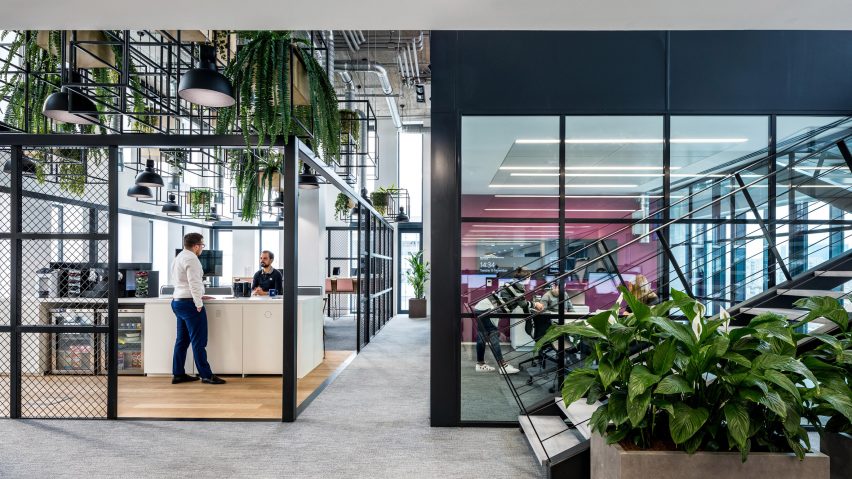
Perkins&Will develops sustainable materials database for interior fit-outs
The London office of architecture and design firm Perkins&Will is developing a searchable directory of sustainable and circular products to help minimise the carbon footprint of its interior design projects.
Named Now Database, the directory will allow Perkins&Will to specify products that support its recent pledge to make all of its interior fit-outs of buildings net-zero embodied carbon by 2030.
Embodied carbon refers to the emissions that result from the manufacturing, construction, maintenance and disposal of materials. According to the firm, this can account for as much as 40 per cent of a building's total embodied energy.
The pledge will also ensure all of its internal fit-outs of buildings are 100 per cent circular by 2025, meaning the materials are continually reused as part of a circular economy.
Database to become publicly accessible
The database is currently primarily used by designers and architects at Perkins&Will's London and Dublin studios.
However, it is being continually developed with the aim of it becoming a go-to tool for other industry professionals working on interior fit-outs and refurbishments.
"The Now Database brings our firm one step closer to achieving the ambitious but necessary targets set out within our net-zero pledge," said Perkins&Will's sustainability director Asif Din.
"We aim to eventually make this database accessible to all, to allow the whole construction supply chain, from designers to installers, to collectively tackle the climate challenges ahead," he added.
Materials given individual performance scores
The database features products and materials from a number of suppliers of all sizes and remains open for others to input their products, too.
Each material in the directory has a unique performance score given by the firm's in-house sustainability team, which takes into account factors such as carbon footprint and potential for reuse after service life.
It also assesses the suppliers' approaches to workers rights and the diversity of the company.
While the database is not yet publicly accessible, it is expected to adopt a similar form to Transparency – the firm's existing website that sheds light on the impact of building material ingredients and encourages the specification of healthy materials in the sector.
Database will contribute to "circular construction industry"
In the future, the firm hopes the Now Database and Transparency website will be used in tandem to "enable a circular construction industry".
Adam Strudwick of Perkins&Will recently shared his thoughts on designing for the circular economy in a live Dezeen talk about architecture and the circular economy.
"Rather than thinking of buildings or interiors as the end product, we have to think about every building as a kind of DIY store for the next project and the next project and the next project," he said.
Feilden Clegg Bradley Studios is another firm that is addressing the embodied carbon of its projects. It recently launched a free tool called FCBS Carbon to help architects estimate and reduce the whole-life carbon emissions of a building proposal.
The tool takes the form of a spreadsheet that can be used throughout the design process to predict a building's carbon emissions over its lifespan.
Main image is courtesy of Perkins&Will.